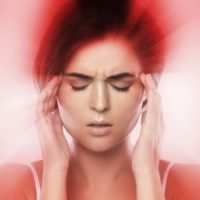Signs And Symptoms Of TBI In Minors Can Be Difficult To Recognize

Many of us understand what a traumatic brain injury (TBI) is, and what the possible signs and symptoms of a concussion are. We have been trained to look for TBI based on the events of our accident, and on differences in mood and affect that occur after an injury that involves some kind of trauma to the head.
Despite all that, TBI, symptoms of TBI, and treatment of TBI, are still not an exact science. And for all the uncertainty surrounding TBI in adults, when it is a child or minor that suffers a TBI, the diagnosis and treatment can be all the more difficult.
What is “Normal?”
One big problem when monitoring a minor for a TBI after an accident, is that there isn’t a solid baseline.
With an adult who is fully formed, there is a baseline—we know how someone acts “normally,” and thus, we can identify changes in that otherwise normal behavior that clue us in to the possibility of traumatic brain injury.
But a minor is different, because a minor is still growing cognitively and mentally. A minor’s mood affect or behavior can change because of hormones, or through the normal growth cycle. That makes it hard to determine if a minor, post-accident, who is having, for example, behavioral or emotional problems, is having those problems because of the accident (or the TBI), or just as a normal process of growing.
Communication Skills
Minors also may be less communicative as to what their problems are, or difficulties that they are having. They are less likely to tell parents about problems. And when they do report the problems, they may not be as skilled or adept at reporting them accurately.
A teen does not know what “normal” depression is, or how to tell the difference between depression caused by TBI or just depression caused by daily life events.
Even doctors can have problems identifying typical childhood disabilities with TBI. For example, things like attention deficit disorder, or learning disabilities, can be diagnosed, when in fact none of them exist—the symptoms the doctor is observing are actually stemming from the TBI.
Compounding Problems
Because children are still developing, the problems that come from the TBI, can lead to other problems, compounding the issues. A child with difficulty concentrating in school because of a TBI, can end up doing poorly in school, and affecting his or her ability to get a higher education.
Concentration problems can lead a teenager to withdraw from social situations, leading to isolation, poor social development and similar difficulties.
Watch for Signs
Remember that just as with adults, blacking out is not always indicative of a concussion or TBI, either of which can happen even without any loss of consciousness. Especially in minors, changes in mood, affect, or behavior, should be closely monitored after an accident.
Contact us today. Call our Boston personal injury lawyers at The Law Office of Joseph Linnehan, Jr. today at 617-275-4200 if you have questions about any head or brain injury you may have sustained in an accident.
Sources:
cdc.gov/traumaticbraininjury/concussion/index.html
mayoclinic.org/diseases-conditions/traumatic-brain-injury/symptoms-causes/syc-20378557
